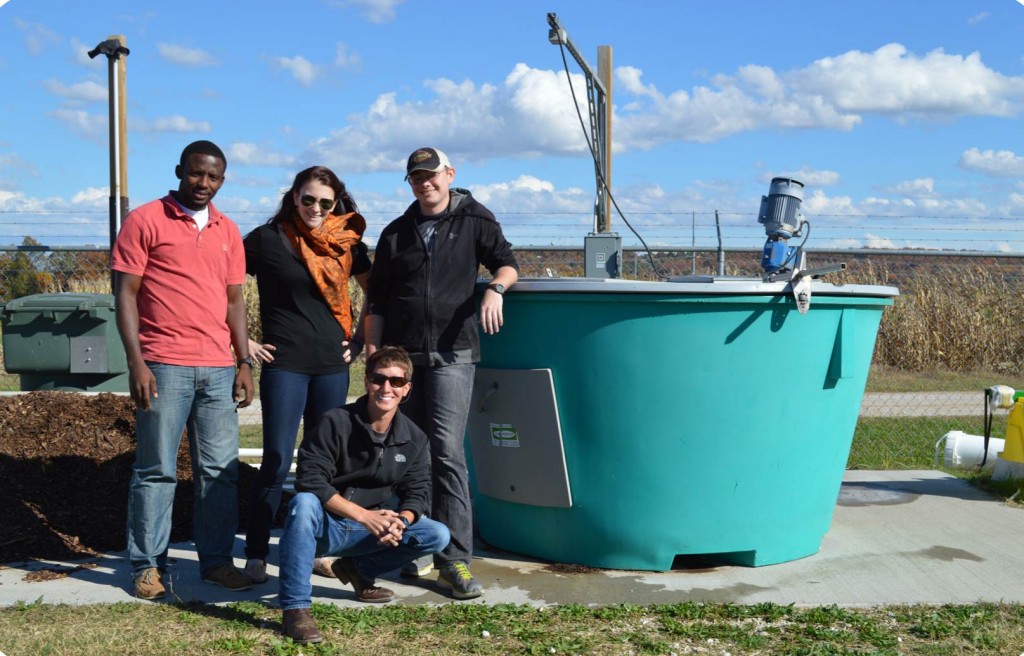By Jennifer McArthur, Agricultural Communications Experiential Learning Lab Reporter
In the movement to establish a more sustainable campus, cooperation between University of Arkansas organizations has made a significant impact by supporting the use of Earth Tubs to compost dining hall food waste.
Student members of the Crop, Soil, and Environmental Science (CSES) student club at the University of Arkansas have created a system that recycles food waste generated by U of A dinning halls into compost used in local community gardens.
The Earth Tubs project is a collaborative push from different departments at the U of A to create a sustainable way to manage food waste, said Cory Johnson, a crop science major.
A lot of dedication from each organization is a significant factor in the creation of this project, which is driven by the students’ desire to help the environment.
“The U of A contract with Chartwells, the food provider on campus, provides us with all the food waste from their Maple Hill residence hall,” Johnson said. “Each Monday, Wednesday, and Friday the food waste is collected by the UA Recycling Center. They deliver the food waste out to the farm, where the composting bins are located.”
The Arkansas Division of Agriculture supports this project by providing the facilities to house this project at the Arkansas Agriculture Experiment Station (AAES).
Once the food waste is delivered to the AAES, members of the CSES club ensure that all preliminary procedures are completed before dumping the food waste into the composting bins.
For these processes, students volunteer their time and work together so that this project is a success. Student involvement is very important in this project because it gives each student a chance to learn about sustainability and open themselves up to new experiences.
The process is continued as students dump food waste into composting bins, which consist of a plastic tub and a rotating auger. These composting bins churn the food waste, speeding decomposition and creating a heating effect that speeds up microbial breakdown of the food.
“We actually rotate the composting bins (using the auger) for 10 to 15 minutes until the food waste heats up. During the fall when the weather was warmer we would get temperature readings that would go up to 130 degrees Fahrenheit,” Johnson said.
The compost is then given back to the community as a donation to local community gardens.
“We are donating the compost to the Tri Cycle Farms here in Fayetteville as well as to a few elementary schools that have community gardens,” Johnson said.
Not only does this project help the environment, it is also gives back to the community and inspires others to focus on a more sustainable way of living.
Partnerships and shared resources between the Crop, Soil and Environmental Science department and the Office for Sustainability have aided in these processes. This mutual aid will help the project and everyone involved work toward an even bigger objective of expanding this project campus wide.
“Our objective is to have this project campus-wide,” Johnson said. “If we were to extend the project campus-wide we would be able to save the university an estimated $60,000 a year.”
The joint efforts of campus organizations and entities have aided in spreading the word about sustainability on campus and throughout the community. Each and every person involved plays a key role in the move toward a more sustainable future.

